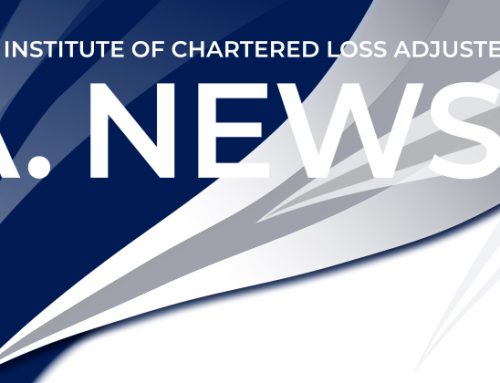This is my last newsletter as President and caps the end of a very successful month.
The highlight was the AICLA/ANZIIF Sydney Claims Convention, which had approximately 300 people in attendance. I particularly enjoyed being able to present Haryo Suseno, Melanie Richardson and Paul McConnell their awards for outstanding academic achievement whilst undertaking the Diploma of Loss Adjusting. It is worth acknowledging Haryo Suseno who travelled from Indonesia to attend the conference and be awarded his certificate.
We also met with delegates from the Loss Adjusters Association of Japan and signed a memorandum of co-operation. I thank the President of the LAAJ, Makoto Uchiyama, and his colleagues. We also made great progress in organising the 2020 Asian Claims Convention, which is planned to be held in Japan in April 2020.
My final thoughts to share with you come from a theme that ran through a number of the sessions at the claims convention, and that is communication. It is interesting that I have been to conferences, internal workshops and listened to the results of client surveys for more than 25 years, and a consistent message is that people often find that there are stages of a claim where they don’t know what is happening or they aren’t being communicated with. I’m not suggesting that I am any better than the average adjuster in this (I’m sure I’m not), but imagine if we could actually keep clients well informed.
Some of you will be good at this, others not so much – it is difficult to be good at every aspect of our job and we all excel at some areas more than others. Imagine how much better the whole industry would be though if we could solve the communication problem. Maybe it is an unachievable utopia, but after 30 years in the industry it is an area in which I think I can put effort into improving myself.
AI and all the other fancy tech ideas will be good at communication. They will have milestones, automated messaging and pre-determined touchpoints, as well as the ability for the client to go on-line and update themselves. We can utilise some of these technologies, but ultimately there are still personal aspects of our job that, if we can do them well, will mean one less reason for someone to replace part of our job with another system. And, more importantly, we might have achieved one more happy client.
People never want to see a loss adjuster, but we all hope that, once everything is fixed, it would be nice if they were glad that we were the one they got.
I would like to finish by thanking Tony, Ash, Clare, Kenz, as well as Michael Davies, our Education Director, and all of the Board members and Division Chairs and Councillors for their support and assistance. Being President is not an endeavour that can be undertaken alone and their support has been invaluable.
Kind regards,




